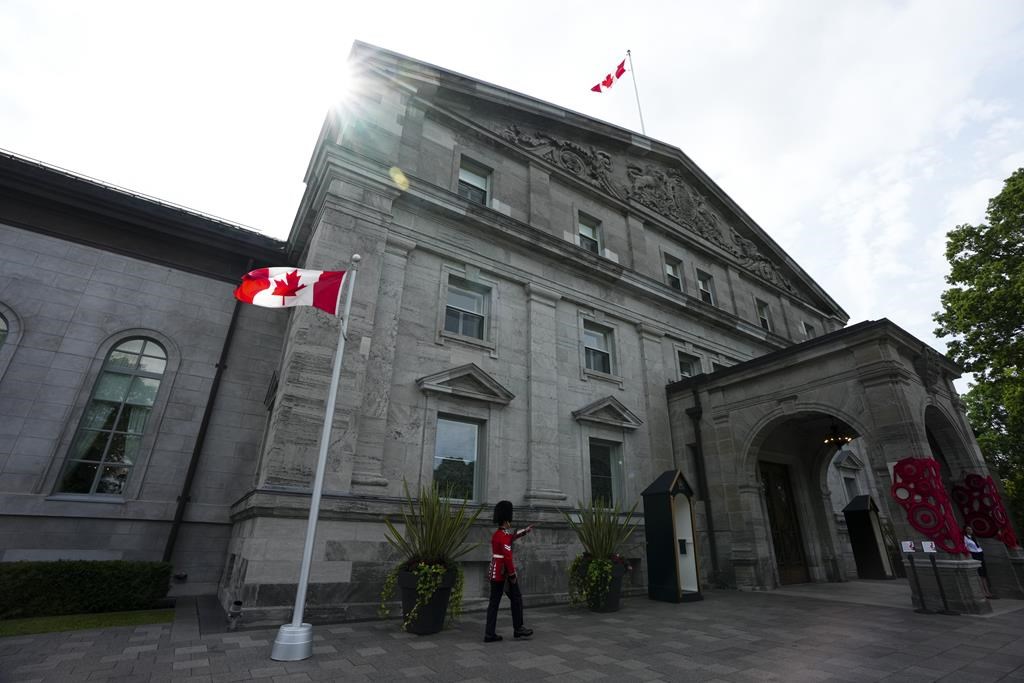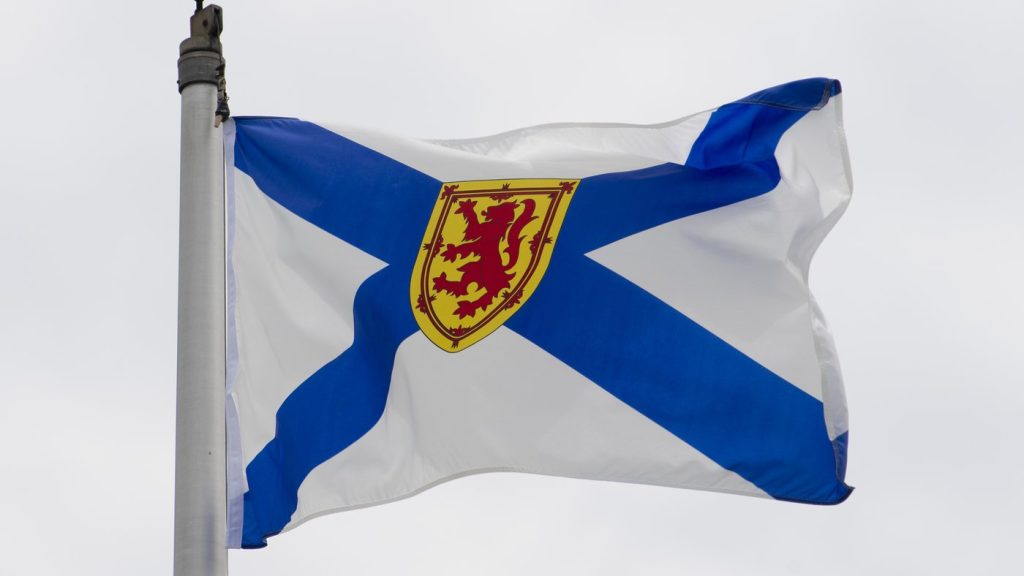Rideau Hall apologizes for honouring Nazi veteran with Order of Canada in 1987

Posted Oct 4, 2023 05:18:14 PM.
OTTAWA — The Governor General’s office has expressed its “deep regret” over having granted one of Canada’s highest civilian honours, decades ago, to a man who fought for a Nazi unit during the Second World War.
Peter Savaryn, a former chancellor of the University of Alberta and leader of the World Congress of Free Ukrainians, was named a member of the Order of Canada in June 1987.
He also fought for the Waffen-SS Galicia Division, a voluntary unit created by the Nazis to help fight the Soviet Union.
“We express our sincere apology to Canadians for any distress or pain his appointment may have caused,” Lynne Santerre, deputy director of public affairs for the Office of the Secretary to the Governor General, said in a statement sent by email on Wednesday.
“Historical appointments to the Order of Canada reflect a specific moment in time and would have been based on limited information sources available at that time,” Santerre wrote.
Last week, Liberal MP Anthony Rota resigned as Speaker of the House of Commons over his decision to invite Yaroslav Hunka, 98, another fighter from the same unit, to attend the Sept. 22 speech by Ukraine’s President Volodymyr Zelenskyy. Rota described Hunka as a hero in his introduction.
Prime Minister Justin Trudeau apologized on behalf of Canada’s Parliament for Hunka having received applause and a standing ovation.
The apology from the office of Gov. Gen. Mary Simon was first reported by the American Jewish news outlet The Forward, which also broke the story about Hunka having served in the same unit.
The statement from the Governor General’s office said it is committed to listening to Canadians and responding to new information that emerges and following its termination policy when possible.
That policy means that an appointment to the Order of Canada is terminated once the recipient has died. Since Savaryn died in 2017, his membership is already terminated, so it cannot be revoked.
Rideau Hall said Savaryn was also awarded the Golden Jubilee medal in 2002 and the Diamond Jubilee medal in 2012, both of which were automatically awarded to all members of the Order of Canada.
Tens of thousands of Canadians received those medals, which were awarded to mark the length of time Queen Elizabeth II had been Canada’s monarch.
The revelation that Hunka fought for a Nazi unit has renewed calls for the government to release the full records from the 1986 inquiry on war criminals, known as the Deschênes Commission.
Hundreds of pages of the report have never been released. Prime Minister Justin Trudeau said Wednesday that public servants are “looking very carefully into the issue” and will make recommendations to government.
David Matas, senior counsel to B’nai Brith Canada, said the current scandal is the price of “inaction and ignorance.”
“We didn’t prosecute everybody we could, we let in people we shouldn’t have let in and we haven’t released the records that should have been released,” he said.
An obituary for Savaryn posted on the University of Alberta website notes that he emigrated to Canada in 1949 “after growing up in Ukraine and enduring the hardships of Russian occupation.”
It’s estimated that thousands of members of the Waffen SS were admitted into Canada after the war on the recommendation of the British government, which assured Canada that the Ukrainian fighters were not “infected” with Nazi ideology.
Matas said that’s indicative of the colonial relationship between the two countries at the time.
“Today, if there was … part of the Wagner Group in the U.K., and the U.K. asked Canada to take them, Canada would presumably say no,” he said.
He said under current immigration laws, known members of the Galicia Division would not be admitted into Canada because the SS was declared a criminal organization by the Nuremburg Tribunal. But because they were known to be members when they arrived, they couldn’t be deported for lying about their origins.
Immigration Minister Marc Miller said declassifying documents that may contain names of former Galicia Division members requires thoughtfulness.
“In the context where impunity isn’t an option, we need to look at whether we can declassify these documents,” he said.
NDP Leader Jagmeet Singh said his party supports their release, but Conservative MP Gérard Deltell told reporters he does not.
“It’s not the best moment to talk about it,” Deltell said.
Matas represented B’nai Brith at the Deschênes Commission hearings, and said releasing the documents is critical.
“We need the full record in order to react systematically to the situation with which we are now faced.”
Savaryn was appointed Queen’s Counsel in 1974. That honour is bestowed by provincial ministers of justice.
According to the Alberta government’s website, the current criteria for what is now the King’s Counsel include distinguished legal service, mentorship and “a history of honesty, integrity, discretion and candid dealings in professional and personal matters.”
A write-up on the University of Alberta’s website said Savaryn chaired the World Congress of Free Ukrainians and founded the Canadian Institute of Ukrainian Studies and the Alberta Cultural Heritage Council.
An award was created in his name in 1996 by the Canadian Foundation for Ukrainian Studies, and he was given an honorary doctorate of laws in 1987.
According to the Ukrainian Canadian Congress, he was also a fundraiser for the Alberta Progressive Conservative Party before becoming president of its provincial association.
After his death, the congress noted that his “wide circle of friends, colleagues and acquaintances” included prime ministers, presidents, princes and spiritual leaders.
This report by The Canadian Press was first published Oct. 4, 2023.
Sarah Ritchie, The Canadian Press








